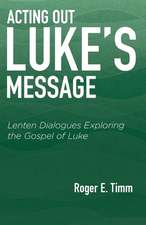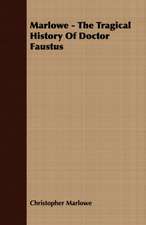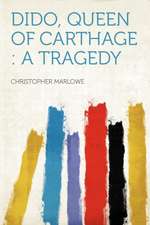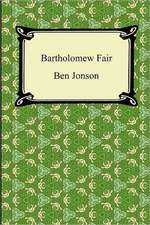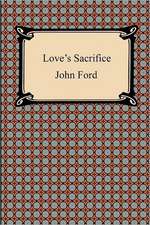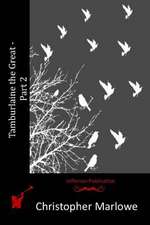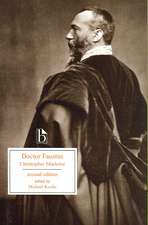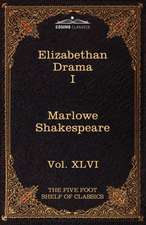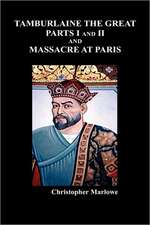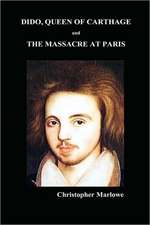Dr. Faustus
Autor Christopher Marloween Limba Engleză Paperback
| Toate formatele și edițiile | Preț | Express |
|---|---|---|
| Paperback (4) | 42.80 lei 3-5 săpt. | |
| – | 42.80 lei 3-5 săpt. | |
| G&D MEDIA – 15 ian 2024 | 66.56 lei 3-5 săpt. | |
| Digireads.com – 31 dec 2004 | 51.42 lei 6-8 săpt. | |
| Digireads.com – 5 feb 2019 | 59.64 lei 6-8 săpt. |
Preț: 42.80 lei
Nou
Puncte Express: 64
Preț estimativ în valută:
8.19€ • 8.55$ • 6.78£
8.19€ • 8.55$ • 6.78£
Carte disponibilă
Livrare economică 15-29 martie
Preluare comenzi: 021 569.72.76
Specificații
ISBN-13: 9781984195579
ISBN-10: 1984195573
Pagini: 72
Dimensiuni: 152 x 229 x 4 mm
Greutate: 0.11 kg
ISBN-10: 1984195573
Pagini: 72
Dimensiuni: 152 x 229 x 4 mm
Greutate: 0.11 kg
Notă biografică
Dramatist, son of a shoemaker at Canterbury, where he was born, was educated at the King's School there, and in 1581 went to Benet's (now Corpus Christi) College, Cambridge, where he graduated B.A. 1583, and M.A. in 1587. Marlowe shunned a life as a clergyman which university wits like himself were expected to follow, and moved to London to pursue the insecure craft of a playwright. Among his early plays were 'Tamburlaine the Great' and 'The Famous Tragedy of the Rich Jew of Malta', all well-received by Elizabethan audiences and displaying an impressive poetic talent that was bold enough to use high-quality blank verse for the first time in English theatre. He collaborated with friend and literary colleague, William Shakespeare, on 'Henry VI' and 'Titus Andronicus' and his influence on Shakespeare is seen in the latter's restrained use of rhyme in 'Richard III'. Traditional rhyme was eschewed by Marlowe in preference for blank verse, over which he acquired a constantly increasing mastery.

